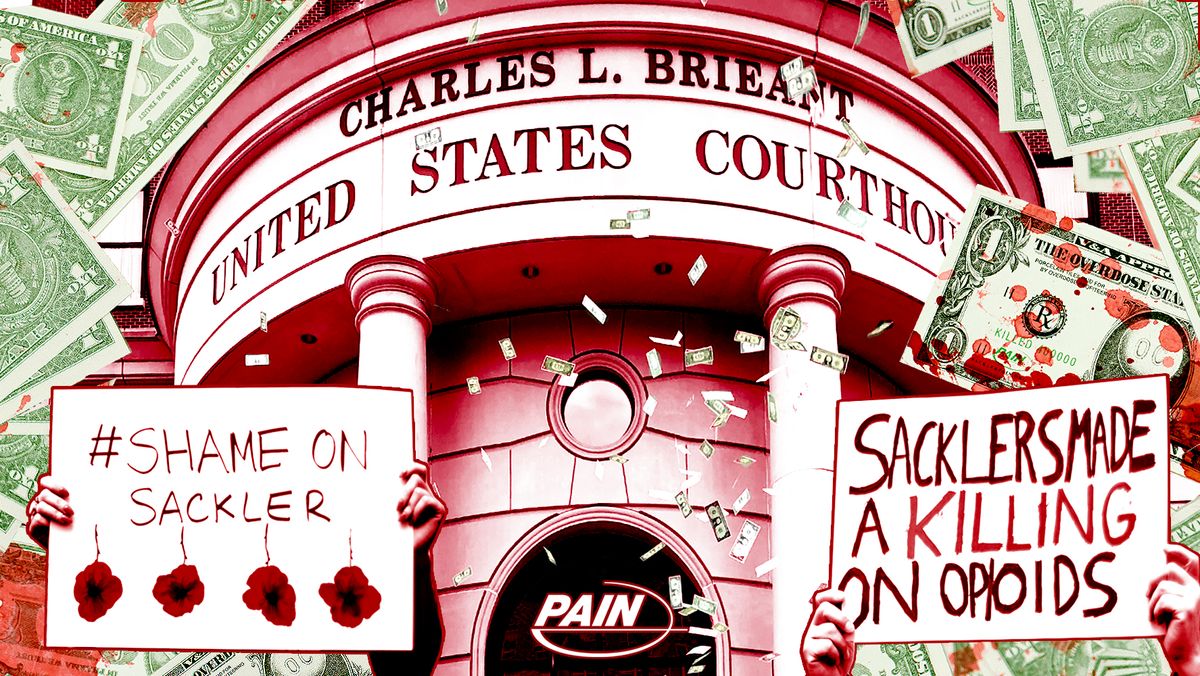The artist Nan Goldin and the activist group Pain (Prescription Addiction Intervention Now) have launched the initiative OxyJustice.org to help victims of the opioid crisis file a Proof of Claim with the US Bankruptcy Court against the drug manufacturer Purdue Pharma. The company has been accused in federal and state lawsuits of minimising the risks of the painkiller OxyContin while aggressively marketing the prescription.
Last September, Purdue Pharma filed for Chapter 11 bankruptcy in a strategy to protect the company and the Sackler family—the museum patrons and owners of Purdue Pharma—from the litigation, halting around 3,000 lawsuits. Purdue is now working to restructure the company in the US bankruptcy court, which will determine a settlement to divide the drug manufacturer’s assets among creditors.
"Bankruptcy proceedings are so difficult and unintelligible and so many victims are afraid to do anything that has the Purdue name on it," Goldin says, adding that the company was legally obligated to issue a call for creditors when they filed for bankruptcy. She notes that many victims may not have adequate access to find this call or file the appropriate documents in response. "What about the people that are homeless due to their addiction, or those in jail? Part of this initiative is getting this information to them."
Prescription and illicit opioids have led to the addiction and deaths of more than 400,000 people between 1999-2018. But according to information provided by Pain, less than 5,000 personal injury claims were processed by Purdue Pharma as of 30 April. The initiative aims to “drastically increase this number before the deadline by providing those with legitimate claims the information they need to file”. While the group does not offer legal advice, Pain reiterates that individuals do not need a lawyer or pharmacy records in order to file a claim and the OxyJustice.org site provides clear instructions on how to file and additional legal information and resources.
“While it’s unlikely that any person will be awarded the full value of their claim, it is essential that it be recorded to measure the impact of the Sacklers’ opioid empire,” Pain writes in a statement. “It is our duty to accurately reflect the damage done to America as a whole.”
By filing a claim, individuals become creditors in the case against Purdue Pharma and will be asked to vote on how Purdue will be restructured. The deadline to file a claim is 30 June. A pending brief filed by Attorney General William Tong last week in the Southern District of New York has requested that the deadline be extended to 30 September due to the coronavirus (Covid-19) pandemic.
The Covid-19 health crisis “has made life even more difficult for vulnerable communities, like working families, drug users, rural communities and those living below the poverty line,” Goldin says, adding that there is a big concern in the harm reduction community about people who use opioids being in isolation, which increases their chances of fatal overdose, with no one to provide Naloxone and first aid in the case of an overdose.
Goldin and members of Pain have also launched another petition last week to call for more transparency in the bankruptcy proceedings following the constantly shifting process as many courts remain physically closed due to Covid-19.
In October, the Pain led a protest on the steps of the Southern District Federal Courthouse in White Plains in New York as the drug manufacturer argued for the dissolution of their company in bankruptcy court. Over the past two years, Pain has staged several protests around major museums calling for arts institutions to cut their relationships with the Sackler family, including dramatic presentations at the Solomon R. Guggenheim and the Metropolitan Museum of Art in New York, the Victoria & Albert Museum in London and the Louvre in Paris.


